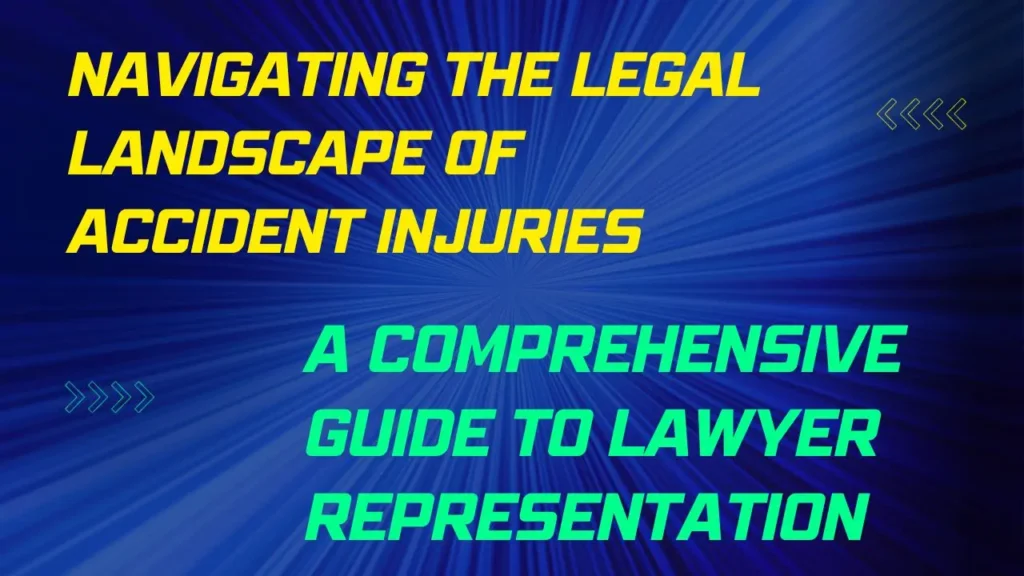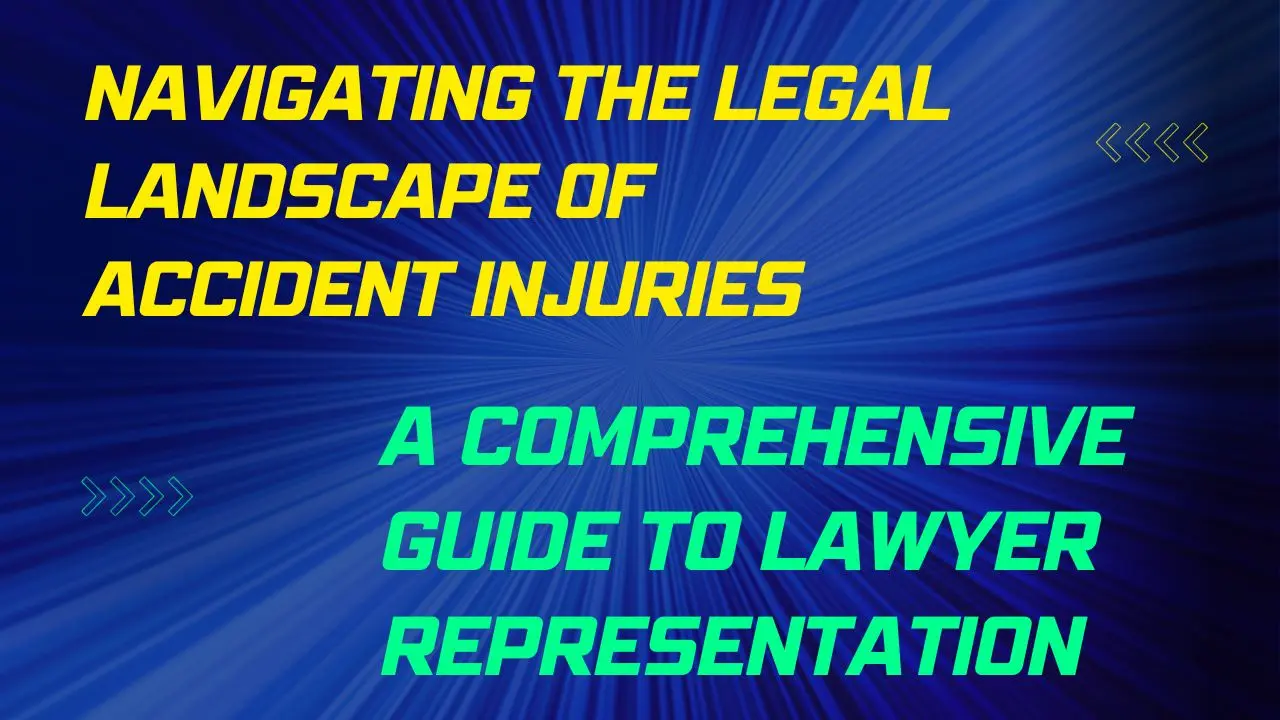Lawyer for accident injury
In the aftermath of an accident, the physical and emotional toll can be overwhelming, leaving victims grappling with not only the pain of injuries but also the complexities of the legal system. Seeking legal representation from a personal injury lawyer proves invaluable in navigating these challenges and securing the compensation rightfully deserved.
Personal Injury Law and the Role of a Personal Injury Lawyer
Personal injury law encompasses a broad spectrum of legal claims arising from accidents caused by another party’s negligence or recklessness. These accidents can range from car collisions and slip-and-fall incidents to workplace injuries and medical malpractice. A personal injury lawyer specializes in this area of law, advocating for victims and ensuring their rights are protected.
Types of Accident Injuries
The diverse nature of accidents results in a wide range of injuries, each with its unique impact on the victim’s life. Some of the most common types of accident injuries include:
- Car accidents: These accidents can cause a spectrum of injuries, from minor bruises to catastrophic spinal cord trauma.
- Slip and fall accidents: These occurrences can lead to fractures, sprains, and head injuries, often with long-lasting consequences.
- Workplace accidents: The nature of work environments can lead to diverse injuries, including machinery-related incidents, exposure to hazardous substances, and repetitive strain injuries.
- Medical malpractice: When medical professionals deviate from the standard of care, resulting in patient harm, medical malpractice claims arise.
- Product liability: Defective products can cause a range of injuries, from minor cuts and lacerations to life-altering disabilities.
Compensatory Damages in Accident Injury Cases
Victims of accident injuries often endure significant financial burdens and emotional distress. Personal injury law seeks to compensate victims for these losses through various types of damages:
- Medical expenses: This covers all costs associated with treating injuries, including hospital stays, surgeries, medication, and rehabilitation.
- Lost wages: This compensates victims for income lost due to their inability to work as a result of the accident.
- Pain and suffering: This encompasses the physical and emotional pain endured by the victim due to the accident.
- Emotional distress: This compensates for the psychological trauma and emotional anguish experienced by the victim.
- Punitive damages: In cases of intentional or grossly negligent acts, punitive damages may be awarded to punish the defendant and deter future similar conduct.
The Role of a Personal Injury Lawyer
Navigating the complex legal landscape of personal injury cases requires the expertise of a skilled personal injury lawyer. These attorneys play a crucial role in:
- Investigating the accident and gathering evidence: This involves collecting police reports, witness statements, medical records, and any other relevant documentation.
- Communicating with insurance companies: Lawyers negotiate with insurance companies to secure a fair settlement offer for the victim.
- Preparing for trial: In cases where settlement negotiations fail, the lawyer prepares the case for trial, presenting evidence and arguing on behalf of the victim.
- Representing clients in court: Lawyers advocate for their clients in court, ensuring their rights are protected throughout the legal process.
Selecting the Right Personal Injury Lawyer
When selecting a personal injury lawyer, it is essential to consider factors such as:
- Experience and expertise in personal injury law: Choose a lawyer with a proven track record of success in handling similar cases.
- Communication style and ability to explain complex legal matters in simple terms: Effective communication is crucial for understanding the legal process and making informed decisions.
- Fees and payment structure: Understand the lawyer’s fee structure and payment terms to avoid financial surprises.
- Personal rapport and trust: A strong rapport with the lawyer is essential for building trust and ensuring open communication.
The Personal Injury Claims Process
The personal injury claims process typically involves several stages:
- Initial consultation with the lawyer: This initial meeting allows the victim to discuss the details of the accident and assess the lawyer’s suitability.
- Investigation and evidence gathering: The lawyer conducts a thorough investigation to gather evidence supporting the victim’s claim.
- Pre-litigation negotiations with insurance companies: The lawyer attempts to negotiate a settlement with the insurance company.
- Filing a lawsuit: If settlement negotiations fail, the lawyer files a lawsuit in court.
- Discovery phase: Both parties exchange evidence and take depositions.
- Mediation or settlement negotiations: An attempt is made to reach a settlement through mediation or further negotiations.
- Trial preparation: If settlement efforts fail, the lawyer prepares the case for trial.
- Trial and verdict: The case proceeds to trial, where the jury or judge determines liability and damages.

Also Read –
Navigating MyWSU: A Comprehensive Guide to the Wayne State University Online Portal
How To Get A Business Credit Card
Best Credit Cards Of December 2023
Purdue University: A Bastion of Knowledge and Innovation
How did university education become so bad?

